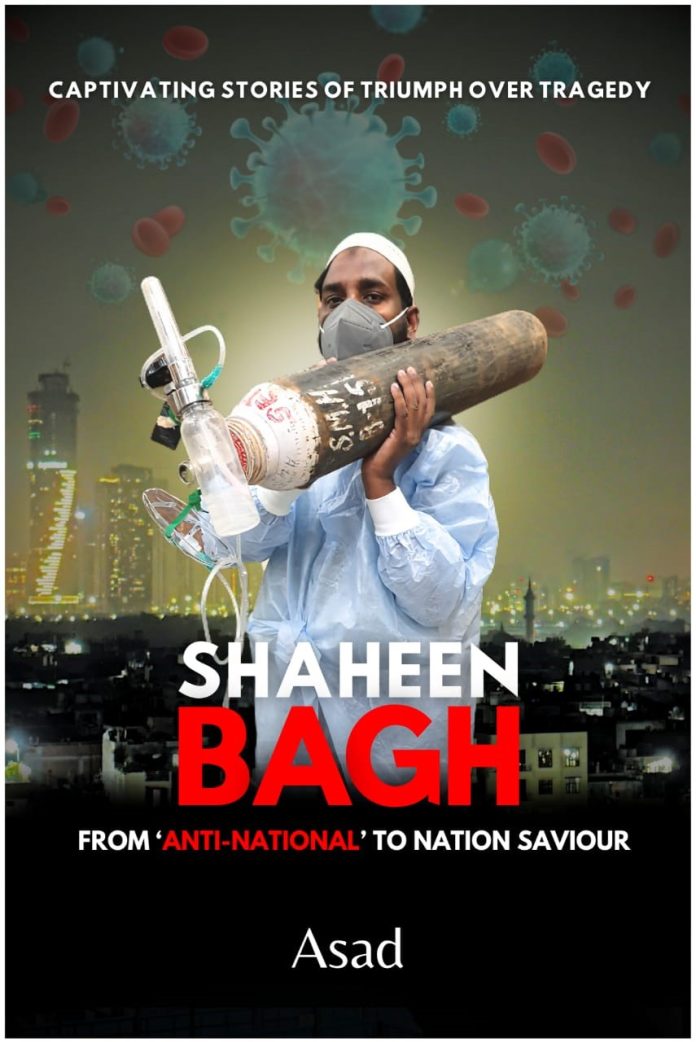Shaheen Bagh: From ‘Anti-National’ to Nation Saviour
Author: Asad
– Shayma S
Don’t judge a book by the cover, they say. But in this book, the cover has a lot going for it. The photo is arresting. A Muslim man, dressed in a PPE suit and a white skullcap, holding an oxygen cylinder. His eyes stare right at the reader. COVID narratives are all over mainstream and alternative media. There have been films made on the pandemic; featuring some testimonies and narratives. But overall, they have been a discomfiting read. Many people, despite appreciating the quality of the film, found themselves struggling to get through films such as Bheed (2023), a stirring black-and-white account of the workers’ migration and the quarantine. No one wishes to revisit some of the darkest times in recent history. It is also perhaps too soon. 2023 was perhaps the first year since the pandemic resembling full ‘normalcy’. But where is the normalcy for those who suffered directly from it? Asad’s book is a haunting testimony to those days, particularly in Delhi.
Ask any Delhiite and they will tell you that the sound of ambulances in those times is not forgotten. This book too, takes you back into those days. Many videos of families stranded outside hospitals with no knowledge of their loved ones come back to mind as you flip through the pages. A large chunk of Asad’s narrative is based in Jamia Nagar and Okhla. The award-winning journalist brings to life familiar names and familiar losses.
Resilience is a common term that comes to mind in times of great tragedy. Cities that suffer great loss are called resilient. They bounce back. Resilience is a running theme here too. When you reach the end of the book and you can feel the sirens slowing down for a while, you breathe a sigh of relief. But then, you think – the book might be over, but the trauma isn’t, for many families. Does resilience need to go hand in hand with justice, restoration and adequate redressal?
There are many parts of the book that highlight and centre the subtitle of the book – from ‘anti-national’ to nation saviour.
Muslims became the target of a media campaign. Members of the Tablighi Jamaat were unfairly arrested and held responsible for the pandemic. Shaheen Bagh had been cleared forcefully. A pogrom ripped through the city. The facts do not need to be repeated but recalled. Muslims emerged to fight back against this narrative and help out their own; people set up helplines, task forces, did everything in their human capacity to help others even at great human risk. Asad, with the true quality of a journalist, does not gloss over failures or places where more efficiency was needed.
The book, unfortunately, like many other self-publishing efforts was in dire need of a good editor. There are errors and lack of standardisation that can be corrected if a second edition emerges. The book also needed more structure to make it clearer; in parts, the book reads like news reports and first-person narratives running into one. However, as an act of record-keeping, it is a vital contribution and a brave effort, and must be supported.




